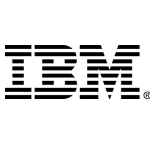Generic
Blockchain: what, why and how?
17/01/2018 | Written by: Think Blog Editor
Categorized: Generic
Share this post:
Everyone’s talking about Blockchain. Your peers are. Your employees are. Your competitors are. But are they making sense? What exactly is Blockchain, what can it do for your business – and, crucially, how do you start adopting it?
Simply put, Blockchain is a trusted, distributed ledger that enables the sharing of business processes between different organisations. Each record created by a participant, be it a transaction, an event, an authorisation or any other piece of information, is added to a growing chain and encrypted. Records, once added, cannot be deleted or changed, providing an immutable record of the history of the business process.
You’d be forgiven for assuming that Blockchain is reserved for financial services firms – it was born out of the cryptocurrency Bitcoin, after all. But the technology is applicable to all industries – and it can have a significant impact on your business.
Blockchain is already making a difference across a range of industries. For example, US retailers Walmart and food and drink giant Nestlé are deploying the technology to create greater transparency around their food supply chains in order to reduce the risk of foodborne diseases. And Everledger is using Blockchain to help businesses to track the provenance of a diamond throughout its supply chain, tackling unethical miners and dealers. The potential applications are manifold – and exciting.
Get organised
For businesses looking to adopt Blockchain, it’s no longer enough to have an enthusiast, or even “fanatic”, in your ranks who drives awareness and adoption of the technology. While they remain critically important to drumming up activity or helping education, it’s increasingly difficult for them to do what’s necessary alongside their day job – not to mention that they might be part of a specific line of business, leaving other areas of the organisation to miss out. CIOs must start to think about Blockchain in a more holistic and strategic way to get the best from the technology.
You must get organised; what is your business’s vision and how does technology such as Blockchain fit into that? What’s your timescale for adoption? How do you drive cohesion among different lines of business? What does the implementation of Blockchain mean for your infrastructure?
It’s worth also considering what role your business wants to play within the emerging Blockchain ecosystem. For example, companies are forming a range of consortia to drive awareness, adoption and innovation. Should your business join any? Do you want to lead a consortium? Do you want to create your own Blockchain for an area of your business? Or do you want to use another company’s? These decisions bring other parties into the process early on; Blockchains cannot occur in silos. The technology is mature enough now that it demands this organised approach.
Scope opportunities
Once your objectives are set, it’s important to figure out how to meet them. Do you partner with a large tech organisation? Or a specialist startup? Will a specific line of business leverage Blockchain to transform a current process? Or have you identified a way for Blockchain to create an entirely new revenue stream? Many businesses are deciding to take advantage of the emerging “Blockchain-as-a-service” business model and consuming the technology as a solution. The right route may very well vary depending on the use case. Which model you choose will depend on your strategies and goals.
Assess internally
The next step is to assess what your business needs in order to meet its Blockchain objectives. Do you require outside skills such as additional technical expertise or a new business analyst who understands how to unlock value from new solutions? You must also consider upskilling your current staff. This is critical: concerns are growing about a widening skills gap surrounding emerging tech like Blockchain and AI; educating your staff in-house goes some way to redressing that imbalance.
Be adaptable
Integrating Blockchain solutions with existing business processes requires a level of flexibility. Creating trial processes (or “shadow ledgers”) in a sandbox environment is one way to ensure a smoother transition and integration. If other parties have bought into the project at an earlier stage, you can co-create these new processes and working models together, and transition them into real business processes when everyone is ready.
From there, it’s often a case of learning as you go. There are still many things to consider, such as creating management and governance processes and assessing your current business controls. Approaches to managing Blockchain projects throughout your business are fluid – and we at IBM understand that. We want to offer our expertise and assistance as you go, while realising that we need to evolve and adapt what we offer alongside your changing needs in this formative and exciting new era.
Everyone’s talking about Blockchain – isn’t it about time you started?
To learn more about Blockchain and how IBM has the expertise to get you started on your journey.
Register for our free webinar today >
Automate work and accelerate business growth
Many companies need help to navigate the rapid changes that define today’s business environment. To improve their responsiveness and flexibility, they are looking for new ways of conducting business, rethinking their processes, and investing in digital transformation projects to increase the robustness of their operations. They rely on business automation technologies to cut out repetitive […]
Sustainability and the technologies enabling the transition
Creating a sustainable future demands significant technological innovation to decarbonize society, restore biodiversity and ecosystem health, foster thriving oceans for sustenance and economic growth, remove atmospheric carbon, transition to sustainable agriculture, and advance eco-friendly cities that align with our vision for a better future. Generative AI has achieved much in recent years and now surpasses […]
Technology in action at Think Summit 2021
Covid 19, the energy transition and climate change require business agility… right away! Organizations that are slowly starting their digital transformation are irrevocably overtaken by competitors: companies that can quickly realize new, sustainable business models with a remote workforce. How can organizations leverage innovations such as AI, machine learning and hybrid cloud to make […]



